There are not many invitations in this world that are available to all people. Invitations through the form of advertisements are extended to the entire population, but in practice, there is an imagined ideal client. Last month, thanks to Toyotaton or Honda Days, we were all “invited” to purchase a shiny new car as a Christmas gift for a loved one, complete with an oversized bow. But come on, for how many of us was that invitation something that most people (setting aside how incredibly impractical this gift may be) could respond to?
We also extend invitations when planning a holiday party or family dinner. Sure, we want to cast a wide net when it comes to the list of people we intend to invite. While we want everyone to feel as though they are remembered and included, do we really want all those people to show up? As you make your guest list, if you are anything like me, you might think to yourself or whisper, “I hope they do not show up” under your breath to that family member who always wants to talk about politics or the friend whose tendencies make them good in small batches. Still, when you mix Uncle Clark’s holiday egg nog with the excitement of the holiday, you know that small batch friend will show up as a category-five hurricane.
Our gospels – Mark, Matthew, Luke, and John – do not agree on every aspect of Jesus’s life and death. The Gospel of Mark completely skipped over the Nativity, beginning with John the Baptist in the wilderness instead of harking angels. Mark, Matthew, and Luke – known as the Synoptics – have a clear trajectory that complements one another, while The Gospel of John is on its own. John talks about signs, and in the Synoptics, Jesus performs miracles. However, for all of the variations in the gospels, all four agree that John baptized Jesus in the Jordan River. The only thing the gospels all agree on is Jesus’s baptism and resurrection.
John the Baptizer extended an invitation to all people to be baptized. John’s baptism was an invitation to repentance[i] and confession.[ii] Mark tells us, “The whole Judean countryside and all the people of Jerusalem were going out”[iii] to John in the wilderness. Did Jerusalem really clear out so that all would repent? Probably not. But John’s invitation to all, to anyone who would listen.
Jesus traveled to the wilderness and was baptized by the camel fur wearing baptizer. At first, John was reluctant. And who would blame him? Jesus is the one John spoke of when he said, “The one who is more powerful than I is coming after me.”[iv] John believed he was not worthy to help Jesus take off his holy Nikes (Hokas).
Jesus enters the water of the Jordan River, and as his head breaks through the surface of the water, the heavens open up, and a voice calls out, “You are my Son, the Beloved; with you, I am well pleased,”[v] and the Holy Spirit descends like a dove.
Emmanuel, God with us, entered the same water where many had left their sins behind so they could turn back toward God.
The Son of God entered the murky waters of creation, taking upon himself the sins of the world so that what we have mucked up is made clean. The unclean becoming clean. The unrighteous made righteous. The mucked up unmucked.
Jesus did not need to repent.
Jesus did not need to be baptized.
But Jesus, in his first act of ministry, getting into the waters of John’s baptism, is just one example of how God is not reigning from a golden chair high above creation. Through what happened in Bethlehem, through the Wise Men traveling from outside the covenant God made with Israel, and through Jesus getting down and dirty in the Jordan River, God is showing us time and time again how God is not willing to allow us to be in the muddiness of life on our own.
When we are baptized, because Jesus entered John’s baptism, we are buried with Christ, exiting the waters clothed in new life in Christ. Baptism is not limited to our yes or parents’ yes on behalf of their child to Jesus. Our baptism is God’s yes to us. Your baptism is God’s yes to you.
With Jesus’s baptism located on the coattails of Christmas on the church calendar, it is easy to take for granted what happened in the murky waters of the Jordan River.
What Jesus did in the Jordan River was an invitation to all people.
When Jesus invites us to the waters of our baptism, it is an invitation to all people.
The invitation of baptism is to be made new in the light of God’s grace.
All are invited to the waters of baptism because, as we will see in the weeks ahead, Jesus is unwilling to allow anything to stand between you and the love of God.
In theory, inclusive invitations are great, but when we dig down into the details – the intentions and expectations of the person doing the inviting – we may find that what on paper appears to be for all people is for a select or preferred few. Over the coming weeks, we will see how Jesus made a habit of inviting the wrong people. We will see that Jesus calls the wrong disciples. We will see him healing the people the religious leaders said were beyond hope. We will see him inviting himself to the wrong places.
These invitations are a continuation of what the angel Gabriel told Mary and Joseph, a continuation of what the angel of the Lord told the shepherds as they watched their flocks by night, and a continuation of the glory of God revealed to the Wise Men who traversed afar. Not only is the good news of the incarnation for all people but all people are invited to experience the transforming grace of God in Jesus Christ. The walls have been broken down with the splash of our baptismal waters.
In just a few minutes, you will be invited to come forward and place your hands in a bowl of water to remember your baptism. This invitation is not an empty ritual to fill time in the service or so that we can check a liturgical box. Through touching the water, through allowing the water to wash over our hands, we remember that before you said “yes” to Jesus, God said to you when Christ was born in Bethlehem, “yes” when Jesus walked into the Jordan River, and “yes” when God would not allow the power of Sin and Death to separate us from God’s love. You are loved, and whatever muck has attached itself to you does not define who you are.
The invitation remains the same generation after generation – come to the water, leave your old life behind, and rise in new life through Christ – and is for all people. Yes, even you.
[i] Mark 1:4
[ii] Mark 1:5
[iii] Ibid.
[iv] Mark 1:7
[v] Mark 1:11


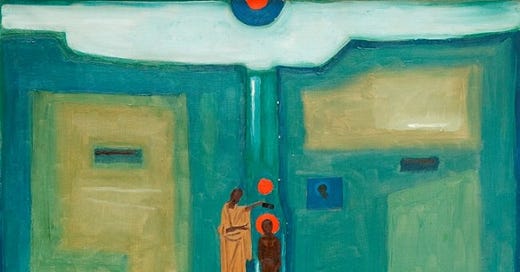



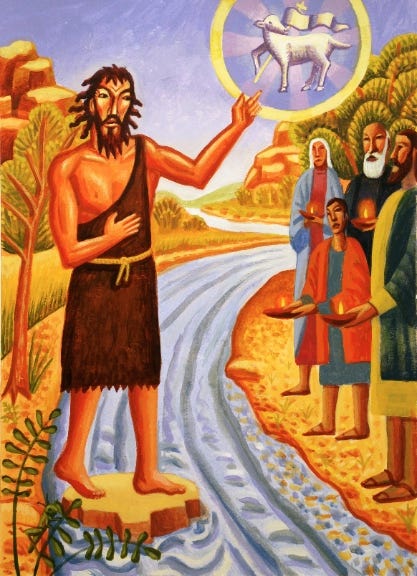
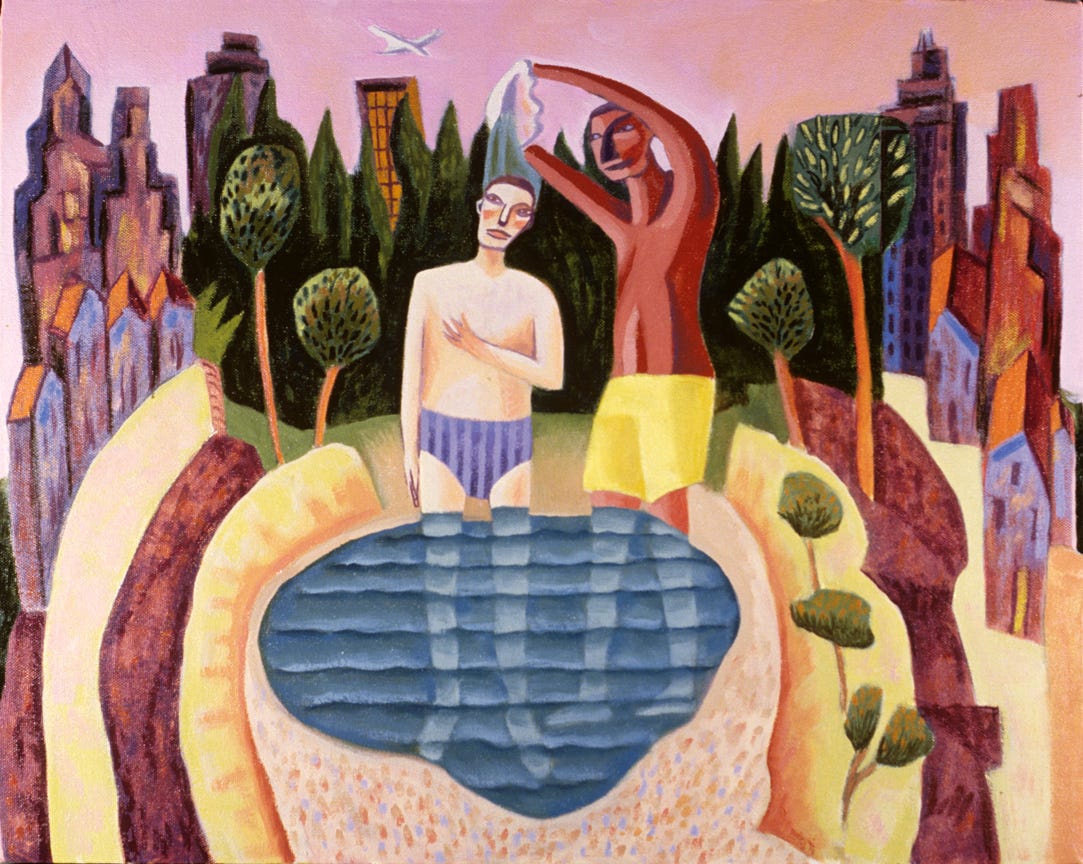
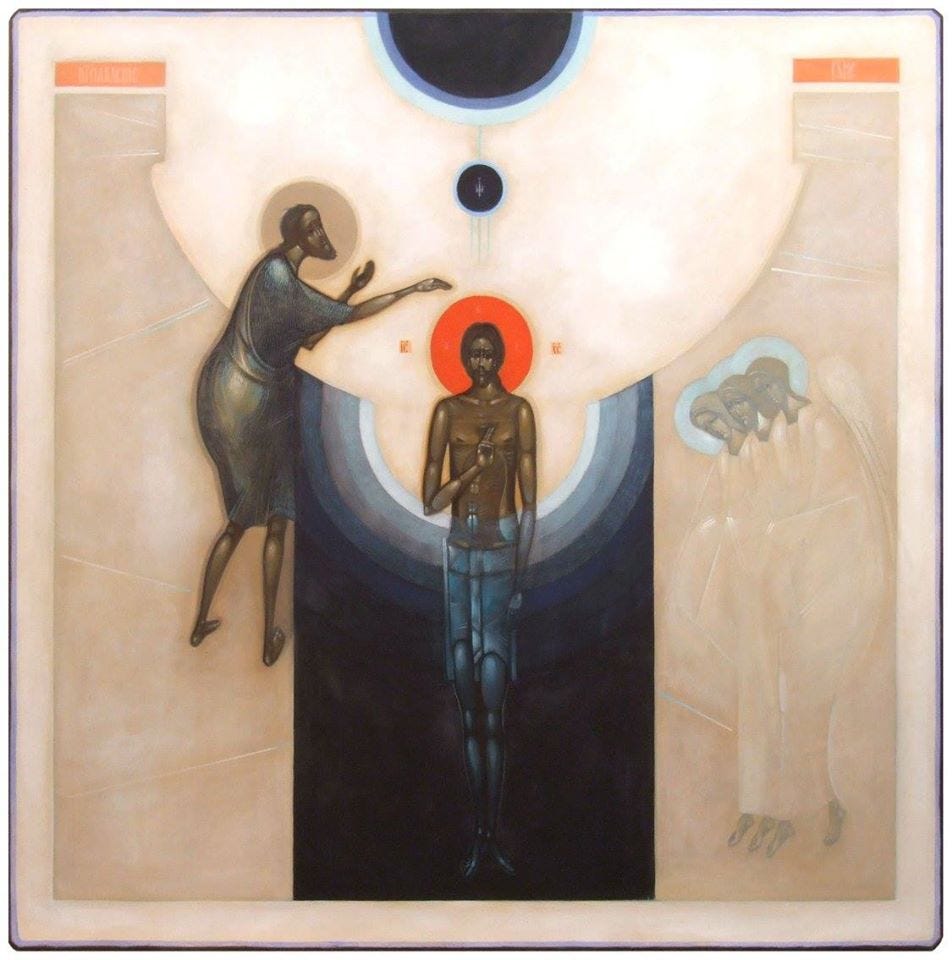

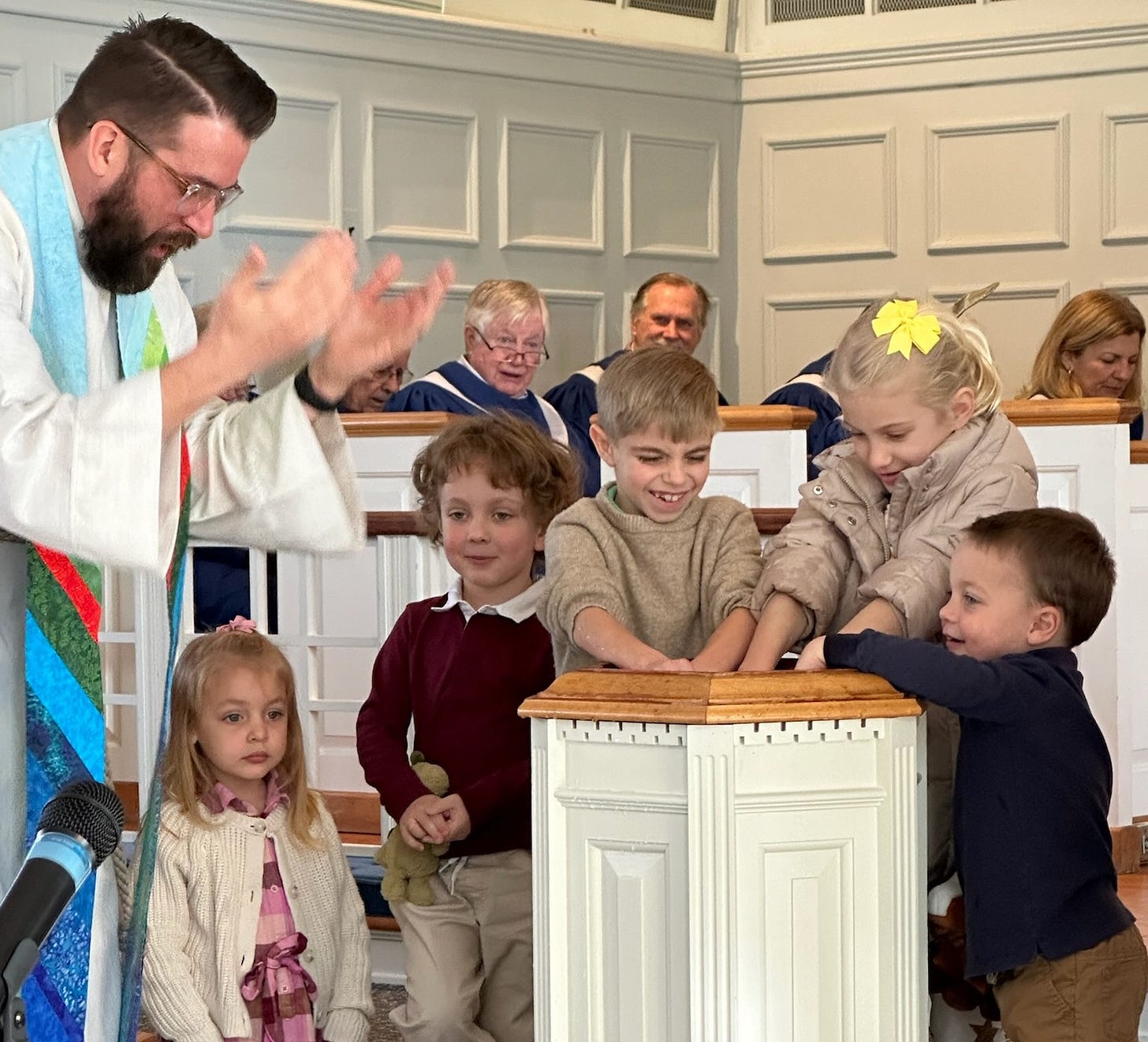

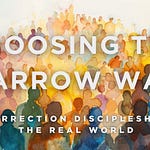







Share this post